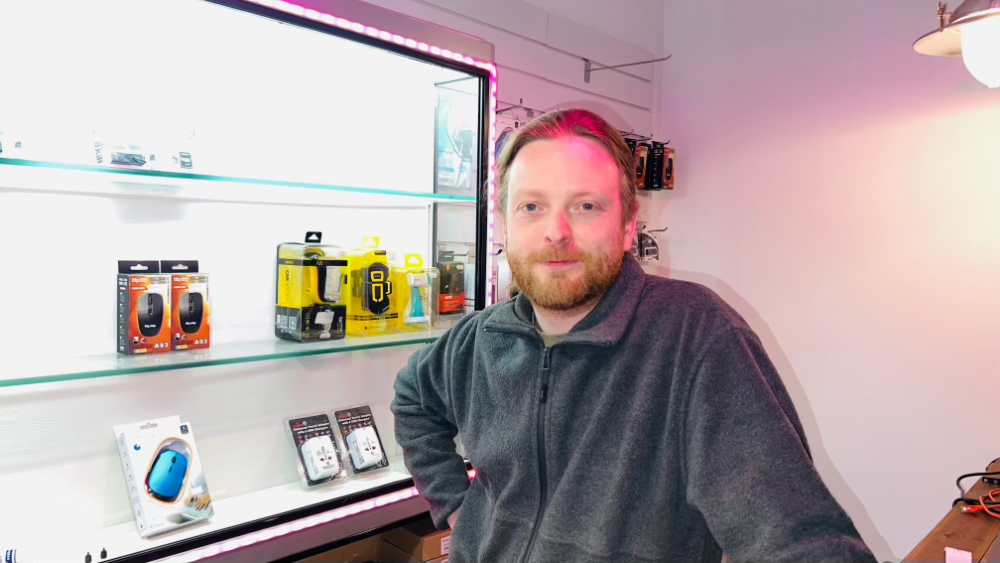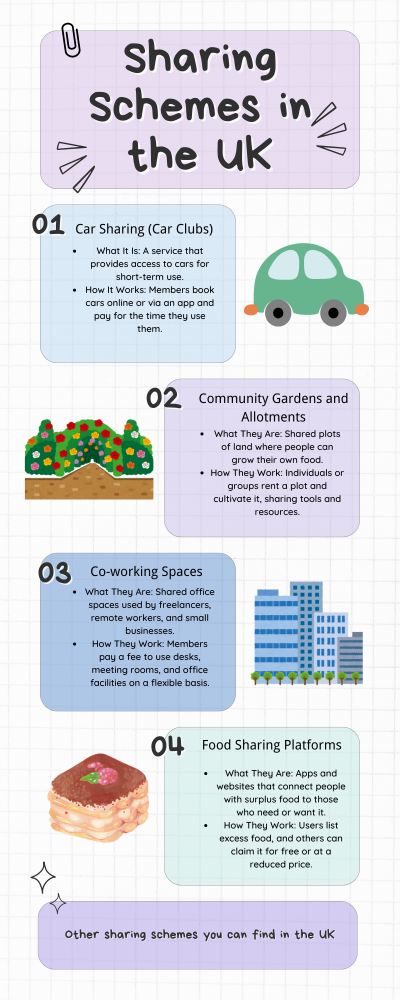Delve into the UK’s innovative approach to sustainability and community building through the Library of Things and Repair Cafés, and explore their potential impact in China.

In the UK, a quiet revolution is underway, challenging the traditional norms of ownership with the rise of the Library of Things and Repair Cafés.
These initiatives are not just trends; they are practical responses to the growing global concern over waste and environmental harm. The Library of Things, recently established in Cardiff, is leading this charge by offering an alternative to the consumerist culture that has come to define our modern lives.
Nick Mac, the manager at Repair Café Wales in Cardiff, shared a story that encapsulates the transformative power of repair: “We had a laptop that was severely damaged by liquid. Cleaning the corrosion and fixing it saved the owner over £900 compared to replacing it. These repairs not only save money but also prevent unnecessary waste.” This ethos of sustainability is at the heart of every repair done at the café, where volunteers work tirelessly to extend the life of items that would otherwise have been discarded.
The Library of Things operates on a simple yet profound premise: borrowing items instead of buying them. This not only reduces the amount of waste that ends up in landfills but also fosters a sense of community and shared responsibility. It encourages people to think twice before purchasing items that they may only need temporarily, thus promoting a more thoughtful and sustainable way of living.
The benefits of these initiatives are manifold, extending beyond the economic and environmental to the social sphere. By sharing skills and knowledge, Repair Cafés create a collaborative environment where everyone can learn and benefit. This spirit of cooperation is the cornerstone of community building and is essential for nurturing a sustainable future.

Emily Thompson, a freelance professional and lifestyle blogger. “The Library of Things has completely transformed my lifestyle,” Emily says. “I was planning a large garden party but lacked sufficient outdoor lighting. Through the Library of Things, I borrowed some beautiful solar-powered lanterns and decorative string lights. They not only added a romantic ambiance to my party but also saved me a significant amount of money.”
The success of the Library of Things and Repair Cafés in the UK raises an interesting question: could these models work in China? With its rapidly growing urban population and increasing concerns over environmental sustainability, China could greatly benefit from adopting similar models. Implementing Libraries of Things and Repair Cafés could significantly reduce waste, promote sustainability, and strengthen community ties.
The Library of Things has already seen impressive results, with 12,000 items borrowed, saving a total cost of £300k and preventing 140,000 kg of carbon emissions. These numbers are a clear indication of the potential impact that such initiatives can have on a community’s environmental footprint.
Repair Café Wales reflects the growing demand for sustainable solutions, as evidenced by the increasing number of local communities eager to launch their own repair cafés. This response is a positive sign of society’s willingness to come together and take practical steps towards a greener future.
The Library of Things and Repair Cafés are more than just places to borrow or repair items; they are hubs of innovation and learning. They provide a platform for people to share ideas, learn new skills, and contribute to a collective effort that benefits everyone involved.
In a world where consumerism often dictates lifestyle choices, the Library of Things and Repair Cafés offer a refreshing perspective. They encourage us to rethink our relationship with possessions and consider the collective good over individual ownership.
In conclusion, the Library of Things and Repair Cafés in the UK are leading the way in creating a more sustainable and community-oriented society. As these initiatives continue to grow and gain popularity, they serve as an inspiration for other countries like China, where the adoption of such practices could lead to a greener and more harmonious way of life.
The concept behind the Library of Things is revolutionary yet simple: why buy when you can borrow? From power tools to kitchen appliances, these libraries allow people to borrow items for a fraction of the cost of purchasing them. This system not only saves money but also reduces the demand for new products, thereby decreasing the environmental impact associated with manufacturing and disposal.
The Cardiff branch of the Library of Things has been particularly successful. It has a wide range of items available, including camping gear, gardening tools, and even musical instruments. This variety ensures that there is something for everyone, making it a valuable resource for the community.
Moreover, the library operates on a membership basis, with affordable fees that make it accessible to all income levels. Members can reserve items online and pick them up at their convenience. This model of shared resources helps build a sense of community, as people come together to support and benefit from the initiative.
Repair Cafés take the concept of sustainability a step further by focusing on repair rather than replacement. Volunteers with skills in electronics, carpentry, sewing, and other trades offer their services to fix broken items brought in by community members. This not only saves money but also reduces waste by giving items a second life.
The atmosphere at Repair Café Wales in Cardiff is one of collaboration and learning. Visitors can watch and learn as their items are repaired, gaining valuable knowledge that they can use in the future. This educational aspect is a key component of the Repair Café movement, empowering people to take control of their possessions and reduce their reliance on consumer goods.
Nick Mac, a manager at Repair Café Wales, emphasizes the community-building aspect of these events. “It’s not just about fixing things,” he says. “It’s about bringing people together, sharing skills, and building relationships. That’s what makes it so special.”
China, with its vast population and rapid urbanization, faces significant challenges in terms of waste management and environmental sustainability. The adoption of Libraries of Things and Repair Cafés could have a profound impact on these issues. By reducing the need for new products and encouraging repair, these initiatives could help decrease the amount of waste generated and reduce the strain on China’s resources.
Furthermore, these models promote a culture of sharing and community, which can be particularly beneficial in urban areas where social ties are often weakened by the fast pace of life. By bringing people together to share resources and skills, Libraries of Things and Repair Cafés can help strengthen community bonds and foster a sense of collective responsibility for the environment.
Implementing these models in China would not be without challenges. Cultural differences, logistical issues, and the scale of urban populations could pose significant hurdles. However, the success of similar initiatives in the UK provides a roadmap that can be adapted to fit the Chinese context.
For instance, China’s emphasis on innovation and technology could be leveraged to create digital platforms that streamline the borrowing and repair processes. Additionally, partnerships with local governments and organizations could help overcome logistical challenges and ensure the initiatives are accessible to all segments of the population.
As the world continues to grapple with the consequences of consumerism and environmental degradation, the Library of Things and Repair Cafés offer a beacon of hope. These initiatives demonstrate that it is possible to live sustainably without sacrificing convenience or quality of life. They show that by working together and sharing resources, we can build a future that is not only environmentally friendly but also rich in community spirit and shared prosperity.
The stories of individuals like Nick Mac and Sarah Davis highlight the transformative power of these initiatives. They remind us that change begins at the community level, with people coming together to make a difference. As these models continue to gain traction in the UK and beyond, they offer valuable lessons for other countries, including China, on how to create a more sustainable and connected world.
In conclusion, the Library of Things and Repair Cafés in the UK are more than just innovative concepts; they are practical solutions to some of the most pressing issues of our time.** By promoting sustainability, reducing waste, and fostering community, they offer a blueprint for a better future. As these initiatives continue to evolve and expand, they hold the potential to inspire similar movements worldwide, paving the way for a more sustainable and harmonious way of living.
